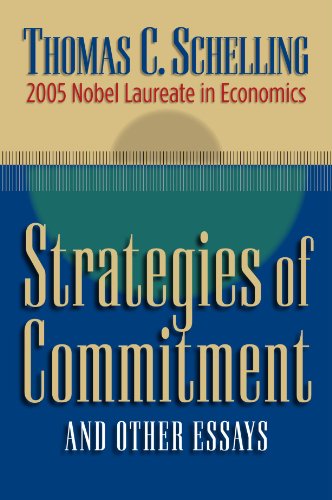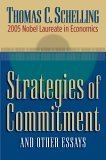strategies commitment essays von schelling thomas (8 Ergebnisse)
Suchfilter
Produktart
- Alle Product Types
- Bücher (8)
- Magazine & Zeitschriften (Keine weiteren Ergebnisse entsprechen dieser Verfeinerung)
- Comics (Keine weiteren Ergebnisse entsprechen dieser Verfeinerung)
- Noten (Keine weiteren Ergebnisse entsprechen dieser Verfeinerung)
- Kunst, Grafik & Poster (Keine weiteren Ergebnisse entsprechen dieser Verfeinerung)
- Fotografien (Keine weiteren Ergebnisse entsprechen dieser Verfeinerung)
- Karten (Keine weiteren Ergebnisse entsprechen dieser Verfeinerung)
- Manuskripte & Papierantiquitäten (Keine weiteren Ergebnisse entsprechen dieser Verfeinerung)
Zustand Mehr dazu
- Neu (3)
- Wie Neu, Sehr Gut oder Gut Bis Sehr Gut (Keine weiteren Ergebnisse entsprechen dieser Verfeinerung)
- Gut oder Befriedigend (4)
- Ausreichend oder Schlecht (Keine weiteren Ergebnisse entsprechen dieser Verfeinerung)
- Wie beschrieben (1)
Einband
Weitere Eigenschaften
Sprache (2)
Gratisversand
Land des Verkäufers
Verkäuferbewertung
-
Zustand: Good. Used book that is in clean, average condition without any missing pages.
-
Paperback. Zustand: Very Good. No Jacket. May have limited writing in cover pages. Pages are unmarked. ~ ThriftBooks: Read More, Spend Less.
-
Strategies of Commitment and Other Essays
Anbieter: WorldofBooks, Goring-By-Sea, WS, Vereinigtes Königreich
EUR 9,49
EUR 6,36 für den Versand von Vereinigtes Königreich nach USAAnzahl: 2 verfügbar
In den WarenkorbHardback. Zustand: Very Good. The book has been read, but is in excellent condition. Pages are intact and not marred by notes or highlighting. The spine remains undamaged.
-
Strategies of Commitment and Other Essays
Anbieter: Better World Books Ltd, Dunfermline, Vereinigtes Königreich
EUR 12,48
EUR 9,08 für den Versand von Vereinigtes Königreich nach USAAnzahl: 1 verfügbar
In den WarenkorbZustand: Very Good. Ships from the UK. Former library book; may include library markings. Used book that is in excellent condition. May show signs of wear or have minor defects.
-
Strategies of Commitment and Other Essays
Anbieter: Revaluation Books, Exeter, Vereinigtes Königreich
EUR 55,36
EUR 14,19 für den Versand von Vereinigtes Königreich nach USAAnzahl: 2 verfügbar
In den WarenkorbPaperback. Zustand: Brand New. 341 pages. 9.00x6.00x1.00 inches. In Stock.
-
EUR 43,95
EUR 48,99 für den Versand von Deutschland nach USAAnzahl: Mehr als 20 verfügbar
In den WarenkorbZustand: New. All of the essays in this new collection by Thomas Schelling convey his unique perspective on individuals and society. Schelling, a 2005 Nobel Prize winner, has been one of the four or five most important social scientists of the past fifty years, and this .
-
Taschenbuch. Zustand: Neu. Neuware - All of the essays in this new collection by Thomas Schelling convey his unique perspective on individuals and society. Schelling, a 2005 Nobel Prize winner, has been one of the four or five most important social scientists of the past fifty years, and this collection shows why.
-
Strategies of Commitment and Other Essays.
Verlag: Harvard University Press, Cambridge, MA, 2006
Anbieter: Raptis Rare Books, Palm Beach, FL, USA
Erstausgabe Signiert
First edition of this collection of essays by the Nobel Prize-winning economist. Octavo, original cloth. Inscribed and dated by Thomas C. Schelling on the title page. Fine in a fine dust jacket. All of the essays in this new collection by Thomas Schelling convey his unique perspective on individuals and society. This perspective has several characteristics: it is strategic in that it assumes that an important part of people's behavior is motivated by the thought of influencing other people's expectations; it views the mind as being separable into two or more parts (rational/irrational; present-minded/future-minded); it is motivated by policy concerns--smoking and other addictions, global warming, segregation, nuclear war; and while it accepts many of the basic assumptions of economics--that people are forward-looking, rational decision makers, that resources are scarce, and that incentives are important--it is open to modifying them when appropriate, and open to the findings and insights of other social science disciplines.






